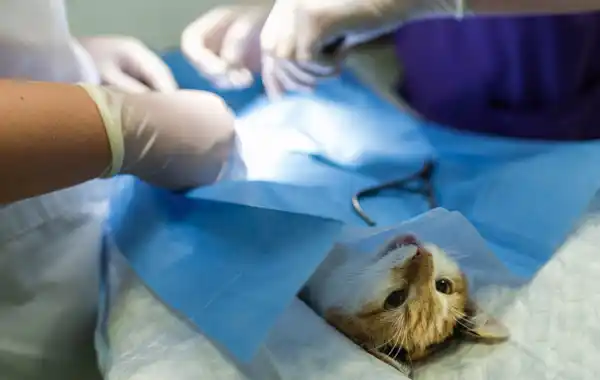Is your cat due to have surgery but you're not sure of the protocol beforehand? Our expert vet tells us what we should expect...
AGA SAYS:
Paperwork and consent
You will be asked to sign a surgical consent form before your cat is admitted for surgery. The consent form always points out that any surgical procedure can carry a risk, and with something very routine such as neutering, that may be taken ‘as read.’
If you are at all unclear, you should insist on discussing the matter further with the vet in charge of your cat’s treatment.
Cost
You should also be given some idea of the likely cost of treatment. In some cases, this can be accurately predicted, although the cost of dealing with any unexpected complications will always be an unknown.
Preparing the body
The exact details of the treatment will depend upon the nature of the surgery and the anaesthetic protocols being used, but this almost always involves a period when food must be withheld (water is often allowed for considerably longer). This prevents food in the stomach from being regurgitated under the anaesthetic, which can cause a life-threatening obstruction to the airway, or an inflammation of the oesophagus which can sometimes lead to a narrowing of that tube and a long-term difficulty in swallowing.
With some procedures, particularly advanced surgery within the chest, drugs are given to paralyse the breathing muscles, so that the breathing can be controlled artificially by the anaesthetist. It is usual in general practice for the anaesthetic to be induced by a vet and then maintained by an experienced assistant, such as a veterinary nurse. When major surgery is being carried out, it is necessary to take steps to ensure that the cat’s vital functions are supported.
Although all vets are qualified to carry out surgery, the actual techniques that they carry out will depend upon their postgraduate training and experience. It may also vary depending upon individual circumstances, such as the urgency of the surgery, the availability of referral services, and the financial resources and preferences of the owner. These are issues that should be discussed openly before major surgery is attempted.







